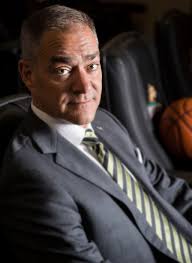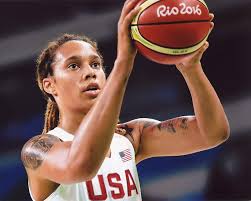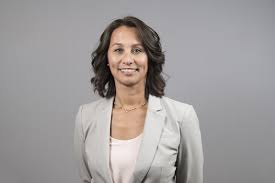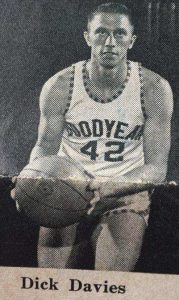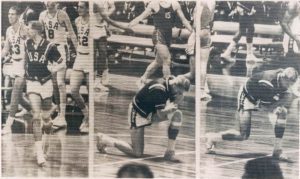The NBA Finals date back to 1947 (when they were known as the Basketball Association of America Finals) and the very 1st NCAA tourney was held in 1939. Olympic basketball competition is even older: it debuted as a demonstration event in 1904 and the men’s version became a medal sport in 1936, with the women finally getting their chance to go for the gold in 1976. The United States has dominated Olympic basketball competition from the start: the men have won 15 gold medals in the 18 tournaments they have participated in during the past 84 years, while the women have won 8 gold medals in the 10 tournaments in which they have competed during the past 44 years. Those of you who were looking forward to the 2020 Olympics opening ceremonies in Tokyo on July 24, 2020 will have to wait an extra 364 days, as the coronavirus caused a postponement until July 23, 2021. Due to the absence of college basketball since mid-March, HoopsHD’s Jon Teitel decided to fill the void by trying to interview as many prior Olympic players/coaches as possible so that you have something to read this summer while not watching the Summer Games. We continue our coverage by chatting with former teammates Don Matuszak/Jerry Johnson/Steve Douglas about Bob Boozer winning a gold medal in 1960 and an NBA title in 1971. Today marks the 60th anniversary of Bob scoring 6 PTS vs. Brazil in the gold medal game.
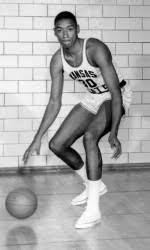
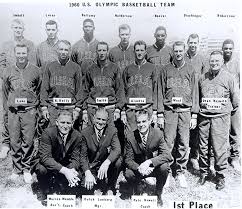 (photo credit: usab.com)
(photo credit: usab.com)
Bob was born/raised in Omaha: how angry was he when his dream school (Indiana) sent him a letter that they had met their “quota of Black players”, and what made him choose Kansas State? Steve Douglas: The other programs that were recruiting him were not as appealing as Kansas State was but I think his decision was mainly made because of Coach Tex Winter. Jerry Johnson: That may be a true story but I never heard about it. He was a good player during high school but was only 6’5” as a freshman before growing 4 more inches during his college career. He came to Kansas State because he liked our team (including 2-time All-American Jack Parr) that was #2 in the country in 1951 before losing to Kentucky. He also liked our coaching staff led by Tex Winter: Tex came here as an assistant before the head man left and he got Howie Shannon to be his assistant. They did not realize how tall Bob would become: his mom was around 6’2” but his dad was much shorter. Some of the Osage Indians in that area were very tall people even back in the 1800s. Don Matuszak: He wanted to go somewhere else but I do not know if it was Indiana. Kansas State was his last resort despite the fact that he was a highly-touted high school player. Tex described him as a young colt and thought that he could develop him into a bigger/stronger player.
He was nicknamed “The Bullet”: who gave him the nickname, and how did he like it? SD: I think that was a high school nickname. If it was used then it was not used widely because none of us ever called him that during college. JJ: I do not know that either. We just called him “Booz”. In the Fieldhouse if we needed some crucial PTS the whole crowd would start cheering “Booz”! DM: We all called him “Booz”. He was voted the favorite man on campus by the student body.
Tex eventually became a Hall of Famer: what made him such a great coach, and what was the most important thing that Bob ever learned from him? SD: Tex was intense and developed a scheme that became pretty famous in basketball circles: the sideline triangle or triple-post offense that gave a prominent role to post men. He was thorough: 1 thing that was different back then is that freshmen were not eligible and Tex took full advantage of that by having us work all year long on fundamentals. It fit his style of coaching very well. The triangle suited Bob very well because the man in the post had to move across the lane: Bob could score equally well while facing the basket or with his back to it. It might not be the most important thing but for me he taught me to stay low on defense. Tex wrote a book describing the set formation where everyone had a role and the ball dictated where you would move next. Tex dedicated a segment of practice just to post men: they worked especially hard. Bill Guthridge was on the team and he took that concept with him when he later worked for Dean Smith at North Carolina. The assistant coach would have to push the player around while playing hard defense. JJ: The key to his success was his discipline. He was an extremely bright man who picked up everything he could when he got out of the Navy after serving as a fighter pilot. “Fred” was his actual 1st name but he grew up in Texas so people called him “Tex”. He had great attention to detail and required us to follow his instructions. He was good enough to be an Olympic pole vaulter. 1 of his sayings was, “I do not want cocky players but I sure want confident ones”. DM: Tex’s triple-post offense got him a lot of notoriety. Bob worked on his jump shot after practice with 1 of the assistant coaches but he dominated due to his maturity. He started all 3 years and still holds many of the school scoring records despite not playing as a freshman, not being able to dunk, and not having a 3-PT line.
In 1958 he scored 32 PTS in a 2-PT 2-OT win over Kansas: how was he able to outscore Wilt Chamberlain (who had 25 PTS)? SD: We had another player named Larry Fisher who came off the bench. During practice that week Tex had Larry hold up a broom while playing defense: it ended up working out well for everybody. Bob learned how to deal with the gangly Wilt and Larry made a high-arcing shot over Wilt in the game that he had practiced. We were hard to beat at home and played well that night, but I had a severe ankle injury that December and hardly played the rest of the year. JJ: In large part it was due to Parr being a great rebounder/shot-blocker. He blocked a shot against Wilt that made a huge difference in the game. For someone of Bob’s size he had great quickness/athletic ability. He could make hook shots with either hand and run the fast break, which allowed him to succeed against a lot of opponents. He later became Oscar Robertson’s best friend: that is the kind of person he was. DM: We had a special defense that night with Jack Parr on 1 side of Wilt and Bob on the other side of him. It kept KU’s guards from getting the ball into Wilt. When we practiced it we had a guy hold a broom up to depict Wilt’s height: it was kind of creative and seemed to work. We were running KU off the court in the 1st half and opened up a big lead. Tex slowed it down in the 2nd half and let them back into the game.
As a senior he set a school record by scoring 25.6 PPG and helped lead the team to a #1 ranking in the nation at the end of the season (25-2 including 21 wins in a row): what made him such a great scorer? SD: He had a good eye for shooting and I cannot ever remember him fouling out. He was durable and frequently played the whole game. We looked for him because he could shoot even though he was not a great jumper. As a sophomore he was more of a forward because Jack Parr was our post man, which turned out to be a turbulent situation. Later on we learned that Jack was in the middle of having a mental breakdown: he and Bob were a terrific 1-2 punch but he later became erratic and missed some practices. Bob kept perfectly composed and never reacted. We made the Final 4 but lost to Seattle with Elgin Baylor. Jack locked himself in his hotel room and refused to play, which was the culmination of his breakdown. He eventually arrived/played but none of us played well and we lost handily, then we lost the consolation game to Temple. I remember Bob being very level-headed and good-natured, which went beyond any game. It was a unique position for a 20-year old guy to be in. JJ: His size advantage over so many people who tried to guard him. Tex made him the player he became due to his drills/theology. For Tex it was almost more important to know how/why to do something rather than actually doing it. We had a set play for Bob when we needed 2 PTS: he would pass to the guard, cut under the basket, then come around for a 15-foot jumper that he would make 70% of the time. The timing on the passes was like a ballet if it was working the way that Tex wanted…and if not then you could go sit on the bench! We were losing to Iowa State 1 night by 5-6 PTS: he benched the starters and I helped lead us to a nice comeback before halftime. Bob only got taken out when he needed a rest. DM: He could fill the lane on fast breaks, make jumpers/hook shots, and tip in our misses. His versatility was great: he had all of the moves.
He was a 2-time Big 8 POY/2-time All-American in 1958/1959 but after getting drafted 1st overall by Cincinnati in 1959 he decided to join the AAU Peoria Caterpillars (where he won a national AAU title and was named tourney MVP) so that he could chase his dream of playing for the US Olympic team the following year: what was the public reaction to his decision, and how pissed were the Royals? SD: I think that folks in Manhattan, KS, were pleased that he was giving up the start of his NBA career to try to make the Olympic team and everyone was proud that he did so well. JJ: I think Cincy was quite unhappy but he made it clear that his goal was making the Olympic team. Since Oscar was also graduating in 1960 they would have a chance to play together: they were competitive on the court but talked about playing together off the court. We were not surprised but the NBA was. I have mixed emotions about it: Parr went to the pros and did not like it, so after Bob talked to Parr I think he realized that AAU was his best opportunity. DM: I think Cincy was very receptive to that. Everyone understood that if you had the opportunity to play in the Olympics it was more important than being drafted by the NBA. I think the max rookie salary was $10,000 and his highest salary was about $100,000: nowadays you see some mediocre players making $10 million/year!
He won a gold medal with team USA at the 1960 Olympics: what did it mean to him to win a gold medal, and how did he feel 50 years later when that team (featuring 10 future NBA players) was inducted into the Basketball Hall of Fame? SD: I did not have much interaction with him after we graduated but he took everything in stride. He was confident that he did his best and must have been content with his career. He was never a hot dog who boasted: he just did his job. JJ: He was an All-Pro for multiple years but winning a gold medal and making the Hall of Fame were his crowning achievements. DM: He was thrilled to death. He was surrounded by a bunch of other college All-Americans and was proud of that achievement.
In Game 7 of the 1966 NBA Finals as a player for the Lakers he had 2 REB in a 2-PT loss at Boston (Bill Russell had 25 PTS/32 REB): where does that loss to the 7-time-defending champs rank among the most devastating of his career? SD: It is hard for me to believe that any loss at that level was more devastating than his final game at Kansas State. We had a 10-PT loss to Cincinnati in the Elite 8: Oscar Robertson did not have a great game but the rest of his team did. Bob just had a terrible game: he might have been sick because there was a flu going around. He shot 11-26 from the floor and I cannot even believe that he made 11. He was missing easy shots all over the place: he never had a game like that before. JJ: I know that he was disappointed of course. Bob was very intelligent and knew that it was about being in the right place at the right time.
In Game 4 of the 1971 NBA Finals with Milwaukee he scored 5 PTS in a win over Baltimore to clinch a sweep: what did it mean to him to win a title, and why did he decide to go out on top instead of returning to try to win 2 in a row? SD: He was smart and knew what lay ahead. He knew that he would need a career after basketball because coaching was not his calling: he was a reticent guy. JJ: I think that his body was telling him to walk away. He did not want to relegate himself to being a 2nd-class player: he did it the right way. DM: He was thrilled to win a title but after a decade in the NBA he was happy to go out on top. His off-court position gained more responsibility so he wanted to focus more time on that.
After retiring he worked for Northwestern Bell for almost 3 decades, bought some radio stations in partnership with his high school teammate Bob Gibson, and spent 15 years on the Nebraska State Parole Board: when people look back on his career, how do you think that he should be remembered the most? SD: The 1st thing I thought of was that he was not very demonstrative/aggressive. We had 1 game against Iowa State where I ended up in the post by accident while Bob had the ball in the corner. He made a great pass to me and I made a hook shot: he came over to congratulate me and it was the happiest that I have ever seen him! He was a gentlemen: everyone knew that he was steady. He was very cheerful and I attribute at least some of that to his roommate Don. JJ: He was a success at every level of everything that he ever participated in. How many African-American guys who were once told they could not eat in a restaurant in Oklahoma would go on to become a lobbyist for Northwestern Bell?! He graduated with an art degree and made some wonderful pencil sketches: he had an eye that allowed him to see straight, which helped him both in basketball and in his business career. He was extremely proud of working on the Parole Board and was a highly significant member. I just remember him as “Booz”. He was tough but an absolute gentleman in everything that he did. DM: He was the best player in the history of K-State: there is nobody better. I do not think they will ever get another guy like Boozer: the current team has mostly perimeter players. We had some other good players but there is nobody better than Boozer. Michael Beasley broke his scoring record but was a bust in the NBA. Bob’s morals were extremely high and he was such a moral person. He was my roommate for 3 years and a lifelong friend.

